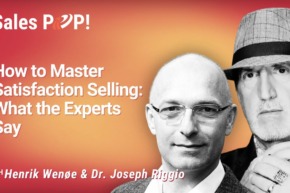We were delighted to be joined by Andrea Mackenzie from Lead with Harmony she is an expert in conscious leadership. This is our topic for today’s interview which is hosted by John Golden “conscious leadership”. Let’s dive into it with a good definition of what conscious leadership entails.
Conscious Leadership entails
Conscious leadership is a leadership approach that focuses on awareness, mindfulness, and ethical decision-making. It involves being self-aware and aware of the impact one’s actions have on others, as well as being attuned to the needs and perspectives of team members. Conscious leaders strive to lead with integrity and empathy and to create a positive and inclusive work environment. They also focus on creating a sense of purpose and meaning for themselves and for their team members. This approach to leadership is about being present and intentional in one’s actions and using one’s leadership role to make a positive impact on the organization and society.
How to gain awareness early in your career or life?
Gaining awareness early in your career or life can be done through a variety of practices and exercises, such as:
- Meditation or mindfulness practices: These can help you become more aware of your thoughts, emotions, and physical sensations, and can help you develop focus and concentration.
- Journaling: Reflecting on your thoughts and experiences can help you gain insight into your own beliefs, values, and patterns of behavior.
- Seeking feedback: Seek feedback from others, including mentors, supervisors, and team members, can help you gain a better understanding of how you are perceived and how your actions impact others.
- Learning from experience: Reflecting on past experiences and the lessons learned can help you develop self-awareness and insight.
- Education: Learning about different cultures, history and philosophy can broaden your perspective and help you see things differently.
- Embrace and learn from failure: Failure is a great teacher, it can give you the knowledge of what worked and what didn’t work, also it can help you to develop a growth mindset.
By incorporating these practices and exercises into your daily routine, you can become more self-aware and develop a deeper understanding of yourself, others, and the world around you.
Finding people that take accountability for themselves
Finding people who take accountability for themselves can be challenging, but there are a few strategies that can help:
- Look for individuals who take ownership of their actions and decisions. They are comfortable taking responsibility for their mistakes and are willing to learn from them.
- Seek out individuals who are proactive in finding solutions to problems and taking initiative. They don’t wait for someone else to tell them what to do.
- Observe how people respond to feedback. Those who take accountability for themselves will be open to constructive criticism and will take steps to improve.
- Seek out individuals who are transparent and honest in their communication. They are not afraid to admit when they don’t know something or when they have made a mistake.
- Look for people who are coachable and willing to learn. They are open to feedback and willing to make changes to improve themselves.
In general, people who take accountability for themselves tend to be self-motivated, reliable, and responsible. They are also more likely to contribute positively to the team and organization.
Our Host
John is the Amazon bestselling author of Winning the Battle for Sales: Lessons on Closing Every Deal from the World’s Greatest Military Victories and Social Upheaval: How to Win at Social Selling. A globally acknowledged Sales & Marketing thought leader, speaker, and strategist, he has conducted over 1500 video interviews of thought leaders for Sales POP! online sales magazine & YouTube Channel and for audio podcast channels where Sales POP! is rated in the top 2% of most popular shows out of 3,320,580 podcasts globally, ranked by Listen Score. He is CSMO at Pipeliner CRM. In his spare time, John is an avid Martial Artist.








Comments